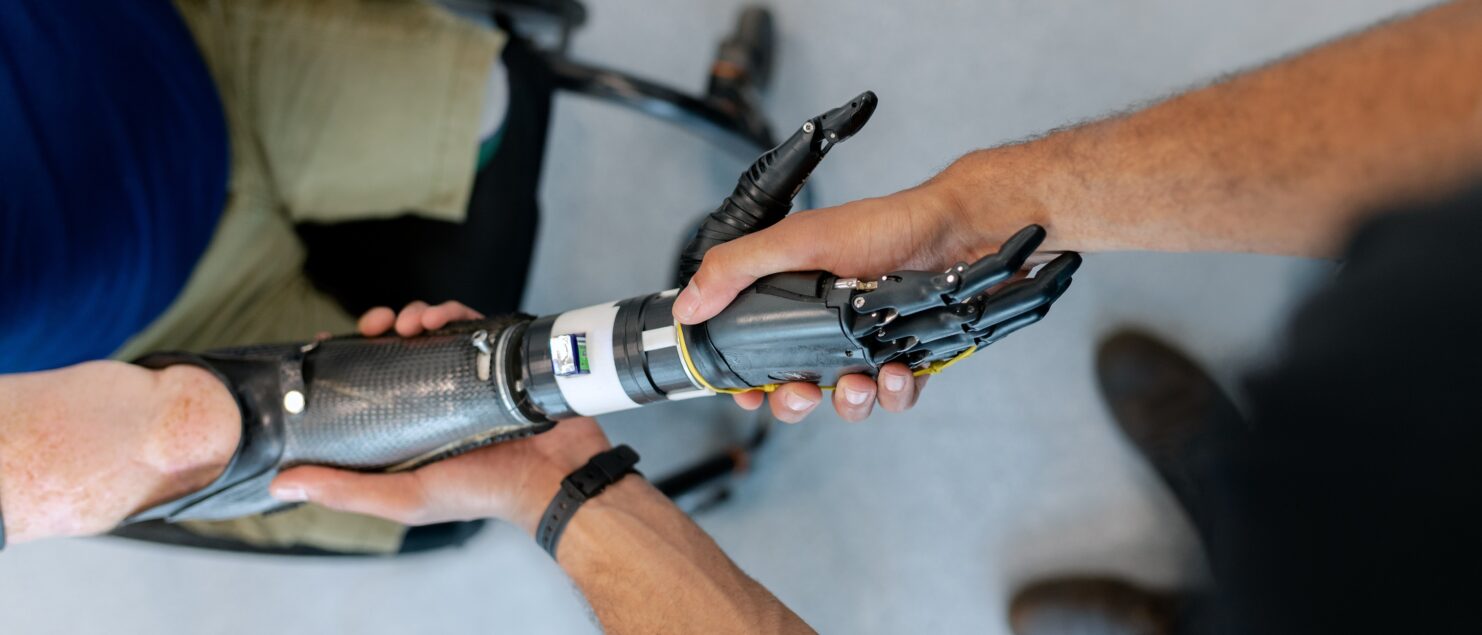Do Robots Dream of an Ethical Future?
Article by Maurice Lynch, CEO, Nathean Analytics, Ireland
“Creating specific legal status for robots in the long run, so that at least the most sophisticated autonomous robots could be established as having the status of “electronic persons” responsible for making good any damage they may cause, and possibly applying electronic personality to cases where robots make autonomous decisions or otherwise interact with third parties independently;”
– EU Parliament resolution 2017 with recommendations to the Commission on Civil Law Rules on Robotics.[1]
In 1948 Harold S. Osborne[2], a senior engineer at AT&T and specialist in wireless technology and telephony, was asked what he thought of the newly invented transistor and its implications for the future – he speculated that “..whenever a baby is born anywhere in the world, they will be given, at birth, a number which will be their telephone number for life. As soon as they can talk, they will be given a watch-like device with ten little buttons on one side and a screen on the other. Thus equipped, at any time when they wish to talk with anyone in the world, they will pull out the device and punch on the keys the number of his friend. Then turning the device over, they will hear the voice of their friend and see their face on the screen, in colour and in three dimensions…”. Quite a prediction and it could be argued that children are now given a “phone number for life” at the age of 13 or younger. The only thing missing in that prophecy from today’s world is the 3D projection on your wrist – but maybe with VR goggles or smart glasses, it is here in some form. What is remarkable is the level of precision, as future predictions are notoriously way off in terms of accuracy, impact, and timeline.
In a talk[3] given by science fiction writer Philip K. Dick (PKD) in 1972, he dismissed Osborne’s prediction – “it’s not going to happen” citing that kids at the time were hacking and bypassing the telephone companies negating the need for such a device. What of PKD’s own predictions of future technologies? Four years previously PKD wrote the novel “Do Robots Dream of Electric Sheep?” better known by its film title “Blade Runner”. It is set in 2021, where androids (or “replicants”) are manufactured to such a high degree of technical sophistication it is near impossible to distinguish them from humans in every aspect. Specific tests would be developed to test the replicants’ emotional response to certain questions involving empathy and monitoring the “capillary dilation of the so-called blush response…”. One of the more interesting themes is how androids feel and view the world. Are they even aware they are androids?
When you consider the current state of robotics and General AI in comparison to the androids in Blade Runner we are barely at the primordial soup stage, and yet ethics and robotics are entering discussions now albeit from the ethical use of robots and AI. In the EU Parliament resolution[1] with recommendations to the Commission on Civil Law Rules on Robotics it recommends creating a specific status for robots as ‘electronic persons’, with specific rights and obligations, and applying it to cases where robots make decisions or interact with third parties. According to the EU Parliament, attributing electronic personhood to robots would resolve legal issues where robots perform functions, such as managing operations, delegating tasks, resolving complex issues and making decisions in real-time. This approach has received a backlash from AI experts and others with an open letter[4] to the EU stating that “From a technical perspective, this statement [creating a specific status for robots as ‘electronic persons] offers many biases based on an overvaluation of the actual capabilities of even the most advanced robots, a superficial understanding of unpredictability and self-learning capacities and, a robot perception distorted by science-fiction and a few recent sensational press announcements. The legal status for a robot can’t derive from the Legal Entity model, since it implies the existence of human persons behind the legal person to represent and direct it. And this is not the case for a robot”. Ironically, to sign the open letter you must prove you are not a robot. These are debates at the embryonic phase of AI evolution with popular press articles appearing around robot rights with headlines such as “2020: The Year of Robot Rights”, “Why We Should Show Machines Some Respect” and “Giving Rights Robots is a Dangerous Idea” and so on[5]. You would wonder if there will be a “Magna Carta” moment in the future with the decree that “the robot is not above the law” with the implication that the robot has legal status and subject to the law or does this remain solely in the realm of science fiction?
More pressing, however, are the ethical issues around the use of AI and its impact on people, organisations and society. Therefore, talking about robot rights seems premature if not distracting. There are real concerns about how the pervasiveness of AI will impact people’s lives and rights on a daily basis. Initiatives such as The Human Centred AI Masters programme (HCAIM)[6] strives to ensure that human values are central to how AI systems are developed, deployed, used and monitored, by ensuring respect for fundamental rights.
Science fiction writers write about dystopian futures as warnings to us and include glimpses of what the future might look like socially and technologically. The work being done in AI today will shape tomorrow, and so too will the legislation, regulations, and legal frameworks we set down now.
About the Author.
Maurice Lynch is CEO of Nathean Analytics, a company which specialises in the development of analytics software with a focus on LifeSciences and Healthcare. An experienced CEO, board member and technical leader Maurice drives the strategic direction of the company and oversees its business operations while playing an active role in the company’s product direction. Nathean is a founding industry member of CeADAR – Ireland’s Centre for Applied AI and served on its board for 5 years.
Maurice holds a B.Sc. in Computer Science from Dublin City University and has completed the Leadership4Growth program at Stanford University.

[1] EU Parliament recommendations to the Commission on Civil Law Rules on Robotics: – https://www.europarl.europa.eu/doceo/document/A-8-2017-0005_EN.html
–https://www.europarl.europa.eu/committees/en/report-with-recommendations-to-the-commi/product-details/20170202CDT01121
https://www.etui.org/sites/default/files/Foresight_Brief_02_EN.pdf
[2] Harold S. Osborne – https://ethw.org/Harold_Osborne
[3] The Android and the Human https://genius.com/Philip-k-dick-the-android-and-the-human-annotated
[4] Open letter to EU http://www.robotics-openletter.eu/
[5] Human rights for robots? A literature review https://link.springer.com/article/10.1007/s43681-021-00050-7#Sec15
[6] HCAIM – https://humancentered-ai.eu/

